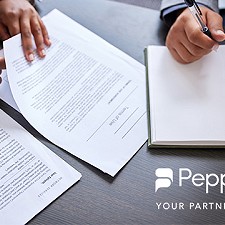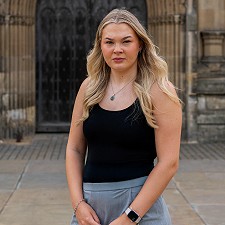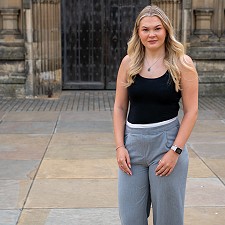- Home
- About
- Our People
-
Personal
- Wills and Trusts
- Conveyancing
- Divorce
- Child Contact
- Family Law
- Property Disputes (TOLATA)
- Criminal Law
- Civil Litigation
- Landlord and Tenant
- Inheritence Dispute
- Personal Injury
- Criminal Injury
- Road Traffic Law
- Adoption
- Consumer Rights
- Debt Recovery
- Injunctions
- Defamation
- Libel and Slander
- Care Proceedings
- Domestic Abuse
- Join Us
- Pepptalk
- Pay Online
- Contact
Conveyancing Solicitors
Buying or selling a property is one of the most important transactions you are likely to undertake and not surprisingly, it can be a stressful time. It may also be your first experience of dealing with a solicitor. It is therefore important when selecting a Solicitor that you choose a firm that you can trust and who are experienced in residential property transactions.
Conveyancing quote
Get in touch
To find out how our conveyancing solicitors can help with your residential property purchase or sale, contact the team today
Why choose us for your Conveyancing?
- We are open Saturday mornings convenient for those with restricted working hours.
- 7am opening to allow you to drop off documentation before your working day.
- All transactions can be carried out remotely for those who are not nearby.
- One-to-one conveyancing.
- Great relationships with estate agents.
- Work closely with mortgage providers.
- Every property purchase we work closely with a family firm of insurance brokers.
Why go anywhere else?
Instruct us now and lets get moving.
Conveyancing…what exactly does it mean?
The procedure for transferring ownership or certain rights in property from one person to another is known as conveyancing.
Your solicitors’ job is simply to ensure that you get what you are paying for and that you will not discover problems about the property you are buying or selling when it is too late.
I Have often heard solicitors talk about searches, what are these?
In addition to your solicitor asking the person selling the property a number of relevant questions, they will also carry out relevant searches with various organisations e.g. The Land Registry.
In practice they are trying to find out whether there are any matters which you ought to know about that might affect your decision to proceed with the transaction.
If you are buying the property subject to a mortgage, your mortgage provider will insist that fundamental searches are carried out. If you are a cash buyer, we would strongly recommend that the same searches are carried out however this is your decision. Depending on the location of the property, additional searches may be required of which we can advise e.g. Flood Report.
Fundamental searches include:
- Authority Search – Search agents check with the Local Authority for relevant information concerning items such as the roads and footpaths which surround the property as well as regulatory issues. If they discover that a new motorway route was being planned near the property, or a new regional airport was to be built a mile away and your proposed home was directly under the flight path then you might wish to think again.
- Drainage and Water Search – This search reveals whether a property is connected to a mains sewer, mains water supply and mains drainage and will show the location of public sewers within the boundary of the property.
- Environmental Search – This search establishes the risk of the land being contaminated and the report’s author assesses the risk of contamination on collating information from Regulatory Bodies, Flood Plane data and a review of current and historic land uses. If at any time the Local Authority determines that there is contamination of land, if the party who causes the contamination cannot be found, the current occupier of the property may be required to remedy the remediation. This can be an expensive process
Frequently asked questions about residential conveyancing
My mortgage provider are carrying out a valuation however they have also asked if I would like to commission a property survey. What should I do?
Your mortgage provider will carry out a simple valuation of the property on every transaction. However, it is up to you as the buyer, whether to commission a survey of the property, in addition to the valuation. There are two types of survey that you can commission, the Homebuyer’s Report and the Full Structural Survey, the latter of which is more expensive but much more detailed. Your property purchase is probably the most expensive thing you will ever buy and this should be considered when weighing up the benefits and cost of a survey.
I have often heard solicitors talk about exchanging contracts. What exactly do they mean by this?
The usual procedure is for the solicitors representing the seller of the property to draft a contract which will be sent to the solicitor representing the buyer. Likewise if you are buying at the same time your solicitor will also receive a contract from the solicitor representing your seller. The contracts are documents setting down on paper exactly what the buyer and seller have agreed. Clearly from your viewpoint the most important parts to check are things such as the price, and any additional fixtures or fittings such as, wardrobes, curtains and carpets etc. However, more importantly and from a legal viewpoint, the solicitor needs to ensure that the title to the land is guaranteed and that there can be no dispute as to ownership.
At what stage will a deposit have to be paid on the property that I’m buying?
Traditionally 10% of the purchase price of property is payable when contracts are exchanged. If you are selling as well as buying then your solicitor will attempt to exchange on both transactions at the same time so that the deposit taken from your buyer can be put towards the deposit on the property that you are buying.
The need to have both transactions running at the same time is one of the reasons why it is better for experienced solicitors such as Pepperells to handle your conveyancing.
When do I get the keys?
It is unusual for you to have the keys and be allowed access to the property until ownership of the property has been passed to you. This will not normally take place until you have paid the purchase price. This part of the transaction is known as completion. As soon as completion has taken place, your solicitor will notify you immediately and you will be able to collect the keys by a means which will have been pre-arranged.
How long does the whole process take?
It is impossible to be specific over this as no two transactions are exactly alike. On average however it is likely to take between six to ten weeks. For instance, factors which may affect the length of time the process takes will include, how quickly the various parties can arrange their finances and the amount of enquiries that need to be raised and how quickly they are answered. Obviously if there is a chain involved where there are many buyers and sellers all dependant on each other this too can add to the length of time involved.
Thereafter your solicitor will in most cases have to attend to the payment of your stamp duty and the registration of your title. This can take several months to finalise (long after you have moved into the property) and as soon as registration has been completed your solicitor will confirm the position to you.
Meet the team
Words from our clients
“
Request a Consultation
Consult with our experienced team for complete solutions to your legal issues.
All the latest from our industry
Latest News
Pepperells Limited, registered in England and Wales: No. 10244781 | Registered Office: 100 Alfred Gelder Street, Hull, East Yorkshire, HU1 2AE | Authorised & Regulated by The Solicitors Regulation Authority | Regulation Authority Numbers 636188, 638554, 638556, 647027, 636188, 807163, 818433, 8000373, 832782 and 830125. | www.sra.org.uk
Pepperells Solicitors are committed to ensuring that all Partners, Consultants and Employees give their full co-operation to the Legal Ombudsman in the event of any dispute or complaint against our firm, contact details of which can be found at www.legalombudsman.org.uk. VAT No. 365 0589 36




















